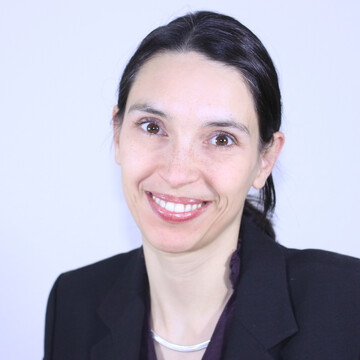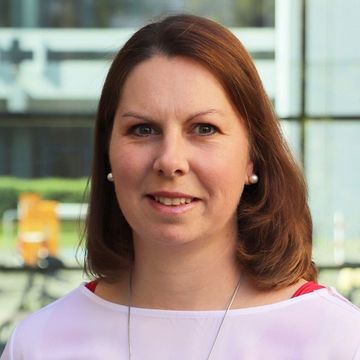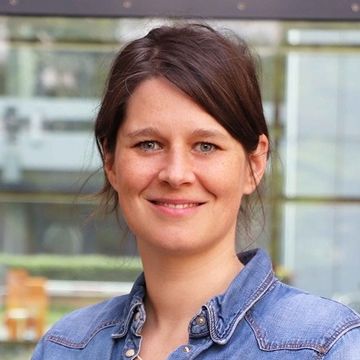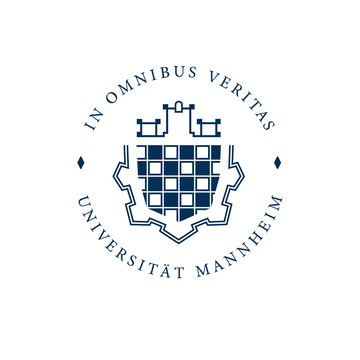Mannheim Master in Data Science (starting from HWS 2024)
Learning Agreements
What is a Learning Agreement, and which forms of recognition are possible for courses they are concluded for?
Learning Agreements are your insurance that the courses you choose to attend at your higher education institution abroad will be recognized by your home university upon return.
Generally, there are two ways of recognizing coursework and examinations you complete abroad:
- direct recognition as an equivalent course
- indirect recognition as an ”Additional Course“
Direct recognition
For a course to be directly recognized, it has to be considered equivalent to a course from the module catalog of your program in terms of the skills you acquire in that course. If you can identify a course at your host university that is largely identical (>70% conformance) to a course you can or must complete here based on the course description, you can include it in your Learning Agreement for direct recognition. The course you complete abroad will then substitute the course taught in Mannheim. To discuss whether a particular course can be directly recognized, please contact the chairs offering the course here in Mannheim.
Indirect recognition
If the Mannheim module catalog contains no direct equivalent to the course you wish to complete at your host university, but the module contents fit one of the areas ”Data Management“, ”Data Analyses“ or ”Projects and Seminars“, it may be recognized indirectly as "Additional Course Data Management“, ”Additional Course Data Analyses“ or ”Additional Course Projects and Seminars“. Bear in mind, however, that the sum of credits awarded for these courses must not exceed 18 ECTS credits in total.
To discuss whether indirect recognition is possible for a particular course, please contact the chair whose area of research and teaching is closest to the course you would like to complete. If you are unsure, please turn to the examination board.
Conversion of Credits from abroad to ECTS credits in cases of indirect recognition
The examination committee determines how many ECTS credits you will receive for a MMDS Additional Course. The number of ECTS credits awarded is calculated by converting the credits of the host university. As a result of this conversion, you might obtain 5 ECTS credits or 7,5 ECTS credits and not the 6 ECTS credits that you get for most courses at the University of Mannheim. Keep in mind that we can only recognize a total of 18 ECTS credits for Additional Courses in the master’s programs. Higher education institutions in European countries usually also use ECTS credits or credit systems that are equivalent to ECTS.
Should I choose courses for direct recognition or courses for indirect recognition?
As the number of courses subject to direct recognition is generally unlimited, unlike Additional Courses, you should choose such courses wherever possible. Courses that are directly recognized also bear the advantage that the credits obtained in these courses do not have to be converted.
What do I need to do to conclude a Learning Agreement and to obtain my credits?
Once you have been accepted by a partner university (in the case of free movers, the acceptance letter will come directly from the university abroad), you should start filling out your Learning Agreement. We strongly advise you to conclude the agreement before you go abroad. That way, you are on the safe side and already know beforehand which courses will be recognized for your studies at home.
The Learning Agreement consists of two forms:
- Fill out the cover sheet (PDF) once.
- Fill out one Learning Agreement form (PDF) for each of the modules you intend to study abroad.
For the recognition of your courses and credits, you need to follow two steps:
Before your departure
After it has been decided which higher education institution you will be going to, but before departing, you issue one Learning Agreement form for each module you intend to study abroad to the chair responsible in order to have the module approved. The contact persons for courses offered at the School of Humanities, the School of Social Sciences, in usiness Mathematics in Business and Economics, at the Business School, and at the Department of Economics are:
- all indirect Learning Agreements: Prüfungsausschuss WIM
- School of Humanities
- School of Social Sciences: Dr. Gledis Londo
- Mathematics in Business and Economics: PD Dr. Thomas Reichelt
- Business Administration: Learning Agreements Business Administration
- Economics: Dr. Christiane Cischinsky
Please note that we can only process complete applications and the processing time can take up to 4 weeks, depending on the effort involved and the current status of the applications for Learning Agreements.
Upon your return
After your return from abroad, please hand in the following four documents to the examination committee responsible for you at the School of Business Informatics and Mathematics:
- request form for recognition of coursework and examinations (PDF)
- Transcript of Records from the partner university: Original Transcript of Records stamped and signed by your host institution or a transcript verified by the International Office in Mannheim. For this purpose, the host university must send the document digitally to the address transcriptsuni-mannheim.de. The verified transcript will then be made available digitally to the examination committee and you will be notified of this. If your host institution issues transcripts exclusively through an online portal and it is NOT possible to have your transcript sent directly to us through the portal, please inform us at transcriptsuni-mannheim.de and we will let you know how to have your transcript verified.
- Learning Agreement(s), signed by the chairs at the University of Mannheim, as well as the cover sheet
- confirmation by the International Office that you handed in your report
Your documents will then be checked and your grades converted. Grades obtained abroad will be recognized by the University of Mannheim on the basis of these conversion tables. After your documents have been checked, we will return the originals to you and transmit a copy to Student Services.Please submit your application in digital form via your university email address. Therefore please send your complete documents to pruefungsausschuss.wimuni-mannheim.de. To verify your transcript, please ask your host university to send your transcript directly to the University of Mannheim (transcriptsuni-mannheim.de). Please note that we can only process complete applications and the processing time can take up to 4 weeks, depending on the effort involved and the current status of the applications.
Which forms do I need to fill out in order to conclude a Learning Agreement?
Degree plans and course schedules
Note: this page describes the updated structure of the MMDS for students starting from HWS 2024. Students who started earlier find information on their study program here.
The Mannheim Master in Data Science (MMDS) program equips students with the knowledge and skills necessary to gain operational insight into large and complex datasets. It covers seven major areas: Fundamentals, Data Management, Data Analytics, Responsible Data Science, Data Science Applications, Projects and Seminars, and the Master’s Thesis.
Fundamentals (27 ECTS)
The goal of the Fundamentals area is to align the different knowledge students acquired in their previous degree programs. Graduates of computer science and mathematics programs will acquire the knowledge required in empirical research (in particular, data collection and multivariate statistics). Graduates of social sciences programs and other fields will acquire the knowledge required in computer science (in particular, programming and database technology).
Data Management (6–24 ECTS)
One of the central challenges in the Big Data area is to handle the enormous amount, speed, heterogeneity, and quality of the data collected in industry, the public sector, and science. The Data Management area covers methods and concepts for obtaining, storing, integrating, managing, querying, and processing large amounts of data. The area includes courses on modern data management technology (such as parallel database systems, Spark, and NoSQL databases), data integration, information retrieval and search, software engineering, and algorithms.
Data Analytics (12–36 ECTS)
The Data Analytics area forms the core of the study program. It provides courses ranging from data mining, machine learning, and decision support, over text analytics and natural language processing, to advanced social science methods such as cross-sectional and longitudinal data analysis. The range of methodological courses is enhanced by courses on optimization, visualization, mathematics and information, and algebraic statistics.
Responsible Data Science (3 – 7 ECTS)There are great concerns about the use of data. A variety of stakeholders are increasingly becoming concerned about the irresponsible use of data. Within this field, students study data science techniques, infrastructures and approaches in order to make them more responsible.
Data Science Applications (0 – 12 ECTS)
The data science applications block comprises courses offered by different schools, such as business, humanities, and social science, which discuss data-driven methods in different application areas.
Projects and Seminars (14 – 18 ECTS)
The Projects and Seminars area introduces students to independent research and teaches the skills necessary to successfully participate in and contribute to larger data science projects. The area consists of research seminars, individual projects, team projects. The projects are conducted jointly with industrial partners and/
or support ongoing research efforts of participating institutes. Master’s Thesis (30 ECTS)
In the master’s thesis, students apply what they learned throughout the program. The master’s thesis is written over a period of six months. Students are encouraged to write their thesis either in the context of research projects conducted by participating institutes or in cooperation with an industrial partner. Students often write their master’s thesis in cooperation with a company from the MMDS Industry Partner Network.
Examinations
There are various forms of examination at the University of Mannheim, with written examinations playing a central role. These are held in fixed examination periods. There are two examination periods per semester: The first usually begins immediately after the end of the lecture period, while the second usually starts in the week before the start of the new semester.
In addition to written examinations, students also have other examination formats at their disposal, such as assignments, projects or oral examinations. These offer the opportunity to perform individually in different contexts.
You can find more information about examinations here.Examination regulations and module catalog
The module catalog 2024/
2025 (PDF, 2 MB) and the appendix (PDF, 320 kB) give an overview of the course and contents of the program. Please read the examination regulations of your program carefully.
Examination committee
Chairman

Prof. Dr. Margret Keuper
Professor for Machine LearningUniversity of Mannheim
Professur für Machine Learning
B 6, 26, B1.18
B6, 26 – Room B1.18
68159 MannheimStudent representative:
You can contact the examination committee via pruefungsausschuss.wimuni-mannheim.de
Tasks of the central examination committee
We are responsible for the following topics:
- Advice on examination regulations
- Advice on module changes
- Advice in individual cases (such as extension of deadlines)
- Approval of reasons for withdrawal or delay
- Extension of examination deadlines
- Serious cases of cheating and breaches of regulations
- Determination of definitive failure with no option to re-sit
- Identification of missed deadlines
- Invalidity of examinations
- Appeal procedure
- Recognition of coursework and examinations
- Semester recognition certificates for BAföG, form 5 according to § 48 BAföG (also for LAG WPO)
 Credit: Emilie Orgler
Credit: Emilie OrglerBirgit Czanderle, M.A.
Student Success Coordinator, Study Coach Business Informatics, MMDS and MMSDS, Contact to Examination CommitteeUniversity of Mannheim
School of Business Informatics and Mathematics
B 6, 26
Gebäudeteil B – Room B 0.05
68159 MannheimConsultation hour(s):
by appointmentAdvisory service
The student advisory (run by the study coach and program manager) is a combined offer for the Mannheim Master in Data Science program.
You can consult us in questions regarding:
- the study program
- the module catalog
- the examination regulations
- cases of hardship
- questions about module changes
- course contents
- your degree plan (modules, tracks, thesis)
You can contact the advisory service via studienberatung.wimuni-mannheim.de.
 Credit: Emilie Orgler
Credit: Emilie OrglerBirgit Czanderle, M.A.
Student Success Coordinator, Study Coach Business Informatics, MMDS and MMSDS, Contact to Examination CommitteeUniversity of Mannheim
School of Business Informatics and Mathematics
B 6, 26
Gebäudeteil B – Room B 0.05
68159 MannheimConsultation hour(s):
by appointment Credit: Emilie Orgler
Credit: Emilie OrglerLisa Wessa, M.A.
Program Manager B.Sc. Business Mathematics, B.Sc. Business Informatics, Mannheim Master in Data ScienceUniversity of Mannheim
School of Business Informatics and Mathematics
B 6, 26
Gebäudeteil B – Room B1.04
68159 MannheimConsultation hour(s):
You can reach me Mondays 11:00 a.m – 12:00 p.m. via phone or via E-Mail. Online-Appointments are possible.
Contact the School of Business Informatics and Mathematics
University of Mannheim
School of Business Informatics and Mathematics
B6, 26
68159 MannheimConsultation hour(s):
by appointment via e-mailMaster's thesis
Finding a supervisor and a topic for your master’s thesis requires early planning and initiative on your part. It is primarily your responsibility as a student to contact a chair that fits your study profile. This means that you need to contact several chairs or professors on your own initiative in order to find someone who will agree to supervise your master's thesis. It is the norm that students contact the chairs personally, and something we expect from students at our school.
Who can supervise my master's thesis?
In general, all professors teaching courses in the MMDS program also supervise master’s theses. However, professors from other schools and departments may also do so, provided the topic falls within the scope of the MMDS program.
Industry Partner Network
MMDS students often write their master’s thesis in cooperation with a company from the MMDS Industry Partner Network.
